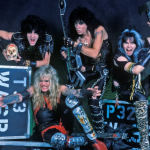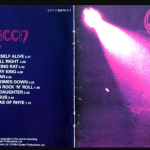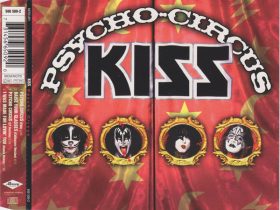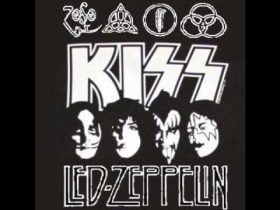(TheBRHM.com) When talking about music with my younger brother—peep his writing over on ThyBlackMan and AfroGamers—the topic of musical consistency comes up often.
You want an artist’s material such as full lengths/LPs to be consistent from album to album and track to track. Even if some tracks don’t lands the overall effort should at least be consistent.
Tardell is big on hip-hop and the business side of music but used to listen to a lot of the same rock music and Southern hip-hop I did when we were younger.
From the late 1990s-early 2000s to now the music industry changed heavily. Artists we listened to as youngsters and teens have waned severely in popularity and several new waves—or modern by now—have dominated in hip-hop.
Consistency Plays Into Longevity
Our discussions about consistency sometime lead to career longevity. To be specific: an artist’s relevancy. In rock music and especially heavy metal, major acts that formed thirty to fifty years ago maintain notable significance in that party of the industry among fans and other musical acts.
Even cult-level acts hold a certain level of respect. That could be because they had a hot period at one time or were considered very real alternatives to more popular acts.
That can be different in hip-hop where popularity can be gained and lost very quickly. Consistency and hit-making ability are what feed popularity. Without popularity, relevancy fades quickly.
It never just drops to absolute zero, of course. Artists who fade out quickly either end up being remembered as a one-hit wonder cautionary tale about constantly chasing a hit or they become those nearly-acts.

Rock Bands Known for Consistency
In hip-hop, two artists known for consistency and longevity in modern music are Drake and Future. Being able to select the right producers, featured artists, and songs to promote over a lengthy period of time at a high level? That’s consistency-fed longevity, folks.
When we look at rock, there have been examples of this in different subgenres. U2, David Bowie, AC/DC, Judas Priest, and Metallica all had periods where they showcased musical consistency and hit-making ability for years.
Note that I said “all had periods”. There are bands that eventually fell off from being musically consistent but could still make hits in a different period. This mainly comes from trying to evolve the sound by bringing it closer to the modern sound.
Consistently Unappealing
We can’t always talk about consistency in the positive sense, folks. Sometimes, a rock band that a really solid-to-good run a few years earlier will attempt to modernize their sound.
In hip-hop, you’ll often see an artist who either moves elsewhere or begin to really voice their appreciation for another sound. That artist starts to work with a younger wave of rappers or collab with established rappers in a certain scene.
Examples of that include crunk pioneer and Memphis hip-hop legend Juicy J dove into hyphy out West, Drake associating with drill music, and Lil Yachty teaming up with Detroit and Flint’s new generation.
In rock music, we had the period where Metallica and Slayer made the push towards modernizing their sounds. The dominant modern sound in rock at that period were the alternative rock bands and nu-metal.
It was modernizing towards nu-metal—which shares an aggressive, speedy approach with thrash metal—which resulted in some consistently unappealing material in the late 90s-early 2000s.
Both bands slowly began to steer the ship in the late 2000s and it was a mixed bag. On Metallica’s end, we eventually got back on track with Death Magnetic in 2008 but things became mixed between DM and 2016’s Hardwired…to Self-Destruct.
As for Slayer—one of my personal top five in metal—you could say they stabilized the ship in the late 2000s with Christ Illusion and World Painted Blood.
The albums weren’t exactly a return to 1990-1996 form but it was closer to the highs that Slayer fans were familiar with for years.
The Perfect Examples
If I had to pick a perfect example of both longevity and consistency, I’d go with Motorhead. Even when the music was becoming more polished, the production became cleaner, and the lyrics became more introspective with age—Motorhead was still heavy as hell and louder than all else.
Up until Lemmy’s death, Motorhead played their brand of fast, loose, and brash metal. While we always want something new in music and from our favorite bands and musicians, there’s a hard balance between not fixing it if it ain’t broke and releasing something fresh that shows growth.
Motorhead hit that balance perfectly. Another pioneering band that was inspired by Motorhead is Sodom. One of the four major bands of the Teutonic Big Four, Sodom has run with Motorhead’s approach to music since 1981.
Like Motorhead, Sodom began with a rough, raw, and raucous style of metal—also sounding similar to Venom—before shaping it up into some gritty thrash metal.
Their sound was modernized but when they found their spot where everything fell in place with 1989’s Agent Orange, Sodom ran with the same formula since.
Sodom’s modernization came more in form of improved skill and production techniques than going “Hey, in Norway this black metal seems to be catching on. Let’s explore that.” or “OK, guys we’re switching gears and going for power metal.”
Staff Writer; James Swift, Jr.
This talented writer is also a podcast host, and comic book fan who loves all things old school. One may also find him on Twitter at; metalswift.


















Leave a Reply